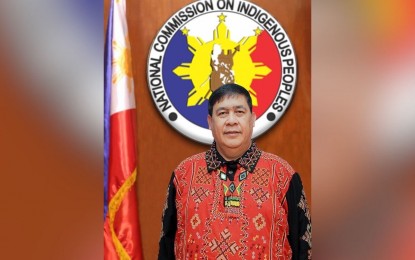
Secretary Allen A. Capuyan, National Commission on Indigenous Peoples (NCIP) chairperson (Contributed photo)
MANILA – National Commission on Indigenous Peoples (NCIP) Chairperson, Secretary Allen A. Capuyan, on Friday stressed the need to “invite the Indigenous Peoples (IPs) on the table, not just put them on the menu.”
Capuyan made this remark during the launch of the Integrated Approach in Management of Major Biodiversity Corridors in the Philippines or the Biodiversity Project, a project seeking to operationalize integrated management of biodiversity corridors to generate multiple benefits.
In his speech, he emphasized the roles of NCIP and other organizations as Duty Bearers and urged offices and stakeholders to engage with the Indigenous Peoples (IPs) towards conserving biodiversity as well as support their rights to ancestral domains, sustainable resource use, and well-being.
IPs aspirations, perspectives
"Significant to any action or project where Indigenous Peoples are affected and founded on our national laws particularly Republic Act 8371 popularly known as the Indigenous Peoples Rights Act, is ensuring the participation of Indigenous Peoples in the entire project development process," Capuyan said.
He said the NCIP is ramping up efforts to support local, national, and worldwide actions to protect, restore, and promote sustainable use of ecosystems, as well as halt and reverse land degradation and biodiversity loss.
He added that IPs should be involved in the project identification, proposal development, implementation, and post-implementation stages to realize IPs right to self-determination.
Aligned with this, Capuyan said, are their Ancestral Domain Sustainable Development Protection Plans (ADSDPP), which are the blueprint of their vision and aspiration as Indigenous Peoples and communities.
Disclosing intent, scope of projects
Capuyan also cited the need to ensure that free prior and informed consent or consensus of Indigenous Peoples is undertaken where it is necessary and fully disclosing the intent and scope of projects
"While many of our government, non-government and civil society organization partners have been working with us for many decades, empowering Indigenous Peoples governance, leadership and socio-economic systems and structures such as Indigenous Political Structures or the IPS, Indigenous Peoples Organizations or IPOs that evolved from indigenous traditional or customary laws, including Indigenous Peoples Mandatory Representatives (IPMRs) in local decision-making bodies coupled with knowledge of Indigenous Peoples histories, are prerequisites in program or project development processes," he said.
Collective interests of IPs
Monitoring biodiversity projects in ancestral domains is another implied task of the NCIP, he said.
It facilitates apprising and forewarning Indigenous Peoples of what experts in sciences are saying while taking cognizance of their best collective interests as not all scientific conclusions and actions towards addressing biodiversity loss are inclusive of Indigenous Peoples' best collective interests.
He added that these are roles to be performed not just by the NCIP, but by "every one of us, either as duty bearers, as proponents and partners in the implementation of national policies."
"We have our respective roles to play through the lenses of our respective mandates and missions. However, we have to join our hands together to provide a progressive narrative that Indigenous Peoples are not helpless victims of biodiversity loss or environmental change," Capuyan said (PR)
